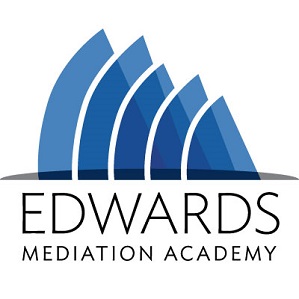
Why Next-Gen Lawyers Need Mediation Advocacy Training
Tiburon, California, Jul 19, 2022
Mediation has become a prominent forum for resolving conflicts of all complexities, yet few lawyers are equipped with the skills needed to represent clients effectively in a mediation. Bruce Edwards, a lawyer and leading mediator, shares his list of essential skills for being an effective mediation advocate. He explains why young lawyers should seek training in mediation advocacy to add value to clients and expand their legal practice.

The Decline of the Jury Trial in Civil Litigation
Across the U.S., litigants, in-house counsel, courts, and judges are demonstrating a strong preference for mediation and other forms of alternative dispute resolution for resolving conflicts. By some estimates, less than 1% of civil disputes in the U.S. end in a jury trial. “While litigation isn’t going away,” says Edwards, “young lawyers will have fewer opportunities to participate in traditional trial litigation. The next generation of lawyers should add mediation advocacy to their skill sets to develop the broadest range of competencies for serving their clients’ needs.”
The Mediation Mindset is not the Litigation Mindset.
As a practicing mediator, Edwards regularly interacts with lawyers appearing in mediations and observes first-hand that many lack the mindset and the client-focused skills needed to be the best advocate for their clients. “When you approach mediation with the skills of a litigation advocate, where your goal is to crush your opponent, you are guaranteed to fail. Winning at mediation requires a different mindset entirely.”
9 Essential Skills for the Effective Mediation Advocate
There are distinctly different skills that serve the mediation advocate, and Edwards lists these as essential to success:
Emotional Intelligence. The best mediation advocates will address their client’s emotional needs and those of others in the dispute.
Exceptional Listening Skills. An effective mediation advocate must be able to listen with empathy, compassion, and an open mind for new information.
Strategic Questioning. Unlike litigation, the mediation advocate must learn the art of using all kinds of questions, including broad, exploratory, and open-ended questions.
Empathy. The best mediation advocates appreciate that nothing helps deepen their connection with the other side and soften the tone of the conflict than a genuine display of empathy.
Trustworthiness. The effective mediation advocate must know how to establish trust and credibility with the mediator and others in the mediation.
Preparation. The best mediation advocates know their case inside and out and are well-prepared for any potential derailing moments in the mediation.
Flexibility. The best mediation advocates come to a mediation prepared to pursue their side as vigorously as possible but anticipate that in the end, there will still likely be a difference of opinion and positions between parties.
Creativity. The best mediation advocates appreciate that mediation is really about the art of exploring the possible ways to match the client’s interests with creative solutions.
Patience. The most effective mediation advocates prepare themselves and their clients for the patience required to work through complex issues and negotiate an agreement.
To help lawyers gain the skills and knowledge they need to represent their clients effectively in a mediation, Edwards has developed a comprehensive training course, The Effective Mediation Advocate, available through Edwards Mediation Academy.
About Bruce Edwards
Bruce A. Edwards is an ADR industry pioneer and former chairman of the board of directors of JAMS, largest private provider of ADR services in the U.S. Along with his wife, Susan Franson Edwards, Mr. Edwards cofounded Edwards Mediation Academy, an online education platform dedicated to improving the skills of mediators around the world.